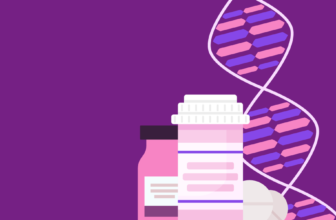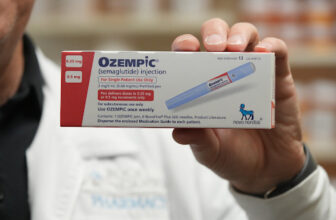
[adinserter block=”3″]
As told to Erica Rimlinger
I was 41 and had spent a lovely day visiting with my mother at her home in Victoria, Canada. As she said goodnight and closed the guest room door, she lobbed a bomb: “Your brother has cancer. Good night!”
Did she think I could just go to sleep after hearing that piece of news? I demanded answers. My 40-year-old brother, it turned out, was diagnosed with stage 3 colon cancer. He’d had abdominal pain for a while but thought he just had the same flu as his dog.
As a longtime healthcare administrator, I’ve picked up a good deal of healthcare knowledge over the years. From the limited information I got as I spoke with my mother, I knew it was a red flag for everyone in the family when someone my brother’s age gets colon cancer, so I called to get an appointment for a colonoscopy and encouraged my mom to do so as well.
I began having colonoscopies every five years. My first and second colonoscopies were clear. Then I moved to California and met with a new gastroenterologist. My doctor stopped the interview halfway through my family medical history, which had a new, recent entry: my mom had been diagnosed with stage 3 colon cancer. “Get genetic testing now,” he said. “Immediately.”
I followed his advice and met with a genetic counselor, who didn’t think we’d find a genetic marker, despite my family history. But a few weeks later I got a call to come back earlier than my scheduled appointment. The message wasn’t good. “Pull up a chair,” she said. “You’re going to be here awhile.”
I had four genetic markers; two of which — PMS2 and BRCA2 — are recognized to increase my risk for cancer significantly. PMS2, or Lynch syndrome, puts me at very high risk for colon, pancreatic, skin, eye, breast and other cancers. BRCA2 puts me at very high risk for not only breast cancer but other cancers as well.
“This is going to change your life,” the genetic counselor told me. “I cannot stress this strongly enough. You need to see a gynecologic oncologist and get a complete hysterectomy immediately.”
Because I was past childbearing age, it was not a difficult decision to get the hysterectomy, which also took my ovaries. She also recommended I get a double mastectomy. But that was a lot tougher of a decision to make. I wasn’t ready to remove my perfectly healthy breasts. I agreed instead to be vigilant about monitoring my breast health. Currently I get an MRI, mammogram and digital exam every year. So far, my doctor has found cysts on the MRI twice. I’ve had two biopsies. Both came back negative.
In addition to monitoring my breasts for cancer, I have a colonoscopy every year, get two skin exams, get an upper endoscopy scope (EGD) every three years and get my eyes checked annually. My oncologist said I’ll need to replace the EGD with a yearly abdominal MRI, since this test can visualize the pancreas better than the EGD.
My gynecologist thinks it’s dangerous that I’ve not gotten a mastectomy yet, and even made me sign a legal document releasing her of responsibility for my decision if I ever get breast cancer. She did this because I’d been taking hormone replacement therapy, which slightly increases my risk of breast cancer. She did not want to be liable if I develop breast cancer and she stopped providing me with a prescription for those treatments.
My health is my decision. I got genetic testing so I could be informed enough to make decisions such as these. For me, some risks aren’t worth taking, such as ovarian cancer, which often has no warning until it is too late. So, that’s why I chose to have my ovaries removed. But I’m willing to take some risks while I remain vigilant with testing to catch anything that may be developing early.
Science and medicine now have powerful insight into our genetic risks for cancer, and these insights are getting better every day. I tell women you don’t necessarily need to wait for an immediate family member to get sick to get genetic testing. Even before my brother got sick, I knew I came from a family with a lot of cancer running through it. Genetic testing showed me my genes carried not just one ticking time bomb, but several.
My genetic counselor shared my genetic test results with my family, urging them to get tested because these results put them at high risk as well. Some family members didn’t get tested, and probably won’t. Many I’ve spoken with say they don’t want to know. They don’t want to live in fear of what could happen.
I take a different view. Knowledge isn’t the cause of fear: it’s power. I now know my options and risks. Genetic counseling laid them all on the table for me. It’s up to me what to do with that information. Knowledge allows me to take the steps necessary and make the decisions I need to live the longer, healthier life that is right for me.
Have a Real Women, Real Stories of your own you want to share? Let us know.
Our Real Women, Real Stories are the authentic experiences of real-life women. The views, opinions and experiences shared in these stories are not endorsed by HealthyWomen and do not necessarily reflect the official policy or position of HealthyWomen.
From Your Site Articles
Related Articles Around the Web
[adinserter block=”3″]
Credit : Source Post






